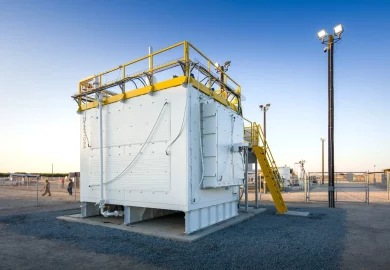-
View Profile
Managing Consultant
Securing Talent for Thermal Battery Success: A Deep Dive
Battery Energy Storage
Managing Consultant

The thermal battery landscape is heating up.
As the industry transitions from nascent exploration to commercialisation, the demand for specialised talent is reaching critical mass.
Building a world-class thermal battery team requires a nuanced understanding of the specific skill sets and experiences that drive innovation.
At the heart of any successful thermal battery development team are individuals with a deep understanding of fundamental scientific principles.
The ability to engineer materials that can withstand extreme temperatures, possess high thermal conductivity, and exhibit optimal energy storage properties is paramount. We’re looking for individuals who can not only understand the behavior of materials at the atomic level but also translate this knowledge into practical applications.
A robust grasp of thermodynamics is essential for optimizing energy storage and conversion processes. We need experts who can model and predict thermal behavior under various conditions, from charging and discharging to thermal management.
While a focus on thermal storage is crucial, a broader understanding of energy storage technologies is beneficial. This includes knowledge of battery chemistries, flow batteries, and other emerging storage solutions.
Thermal batteries are a complex interplay of engineering, materials science, and economics. To truly excel, teams must transcend traditional disciplinary boundaries.
Mechanical, chemical, and electrical engineers bring invaluable expertise in system design, process optimization, and integration. They are crucial for translating theoretical concepts into tangible products.
With their deep understanding of material properties and reactions, chemists are essential for developing novel materials and improving energy storage capacity.
A financial perspective is often overlooked but equally critical. Economists can model the economic viability of thermal battery systems, identify cost-reduction opportunities, and assess the overall market potential.
While foundational knowledge is essential, practical experience in related fields can provide invaluable insights.

The ability to handle and store high-temperature energy is a shared challenge. Professionals with CSP experience can offer valuable perspectives on thermal fluid management, heat transfer, and energy dispatch.

Capturing and utilizing waste heat is another area with significant overlap. Engineers with WHR experience can contribute expertise in heat exchanger design, thermal insulation, and low-grade heat utilization.
Beyond technical expertise, the most successful thermal battery teams possess a shared passion for innovation and a relentless drive to solve complex problems. They are adaptable, collaborative, and eager to push the boundaries of what is possible.
Skills in materials science, thermodynamics, and energy storage systems are essential, along with interdisciplinary expertise in engineering, chemistry, and economics.
Experience in related fields like CSP and WHR provides valuable insights into thermal fluid management, heat transfer, and energy dispatch, which are crucial for thermal battery development.
Thermal battery development involves complex interactions between various disciplines. Collaboration ensures that theoretical concepts are effectively translated into practical applications.
Economists assess the economic viability of thermal battery systems, identify cost-reduction opportunities, and evaluate market potential, which are critical for commercialization.
Encouraging a shared passion for problem-solving and innovation, along with promoting adaptability and collaboration, helps teams push the boundaries of what is possible.
Diversity and inclusion bring varied perspectives and ideas, fostering creativity and innovation, and enhancing problem-solving capabilities within the team.
In conclusion, building a world-class thermal battery team requires a strategic approach that combines deep technical expertise with a broad interdisciplinary perspective.
By focusing on core competencies, fostering collaboration, and leveraging industry experience, companies can position themselves at the forefront of this transformative technology.